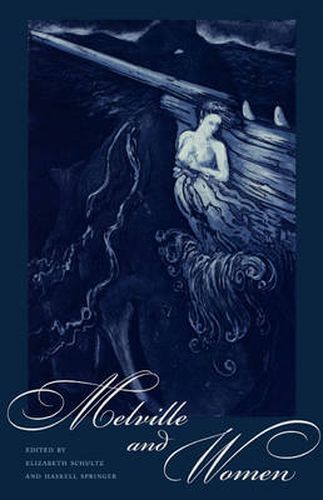Readings Newsletter
Become a Readings Member to make your shopping experience even easier.
Sign in or sign up for free!
You’re not far away from qualifying for FREE standard shipping within Australia
You’ve qualified for FREE standard shipping within Australia
The cart is loading…






The twelve new essays in this collection extend the interest in Melville and women evident in recent scholarship, biography, art, and drama. Throughout his life, Melville lived surrounded by women, and he wove women’s experiences into most of his literary work, early and late. Treating his poetry and prose and using a variety of theoretical approaches from the biographical to the ecocritical, the essays focus not only on Melville’s female characters but also on gender roles, colonialism, intertextuality, legal issues, and concepts of the female and feminine. Several of them demonstrate his sensitive response to the work of nineteenth-century women authors. Collectively, they open new understandings of a writer too often seen almost wholly in masculine contexts. The comprehensive introduction by the editors surveys women in Melville’s writings and situates the essays historically by relating them to scholarship concerning women in Melville’s work as well as to Melville scholarship written by women. The essays are complemented by an extensive bibliography, portraits, and a portfolio of paintings created by contemporary women artists in response to Moby-Dick.
$9.00 standard shipping within Australia
FREE standard shipping within Australia for orders over $100.00
Express & International shipping calculated at checkout
The twelve new essays in this collection extend the interest in Melville and women evident in recent scholarship, biography, art, and drama. Throughout his life, Melville lived surrounded by women, and he wove women’s experiences into most of his literary work, early and late. Treating his poetry and prose and using a variety of theoretical approaches from the biographical to the ecocritical, the essays focus not only on Melville’s female characters but also on gender roles, colonialism, intertextuality, legal issues, and concepts of the female and feminine. Several of them demonstrate his sensitive response to the work of nineteenth-century women authors. Collectively, they open new understandings of a writer too often seen almost wholly in masculine contexts. The comprehensive introduction by the editors surveys women in Melville’s writings and situates the essays historically by relating them to scholarship concerning women in Melville’s work as well as to Melville scholarship written by women. The essays are complemented by an extensive bibliography, portraits, and a portfolio of paintings created by contemporary women artists in response to Moby-Dick.